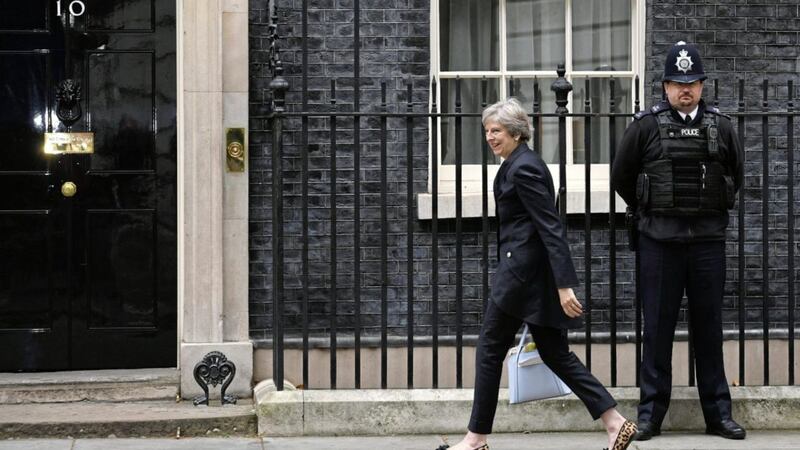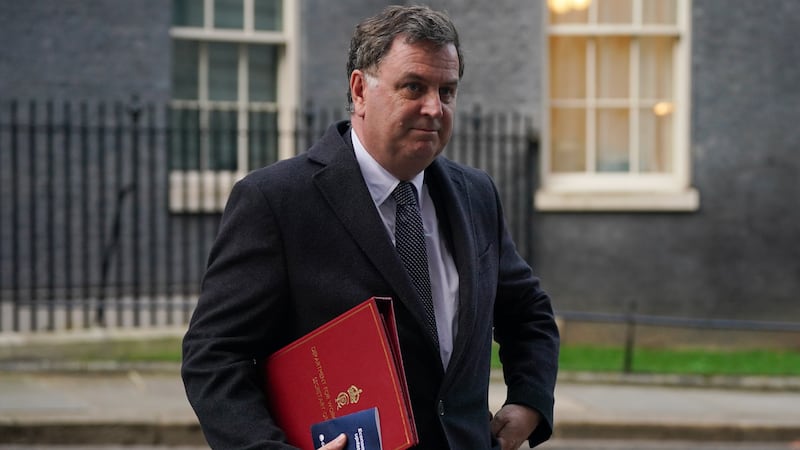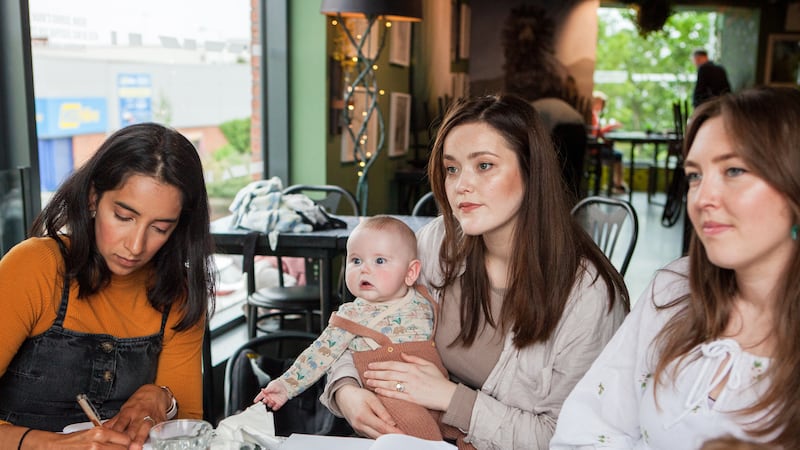New policy papers being published by the government will pave the way for Britain to operate as an "independent trading nation" after Brexit, even if no trade deal is reached with Brussels, Theresa May has said.
The white papers on post-Brexit trade and customs arrangements were released as the prime minister told MPs that "real and tangible progress" was being made in Brexit talks since her high-profile speech in Florence last month.
But Mrs May suffered a setback in Brussels, as the European Commission's chief spokesman insisted that further compromise was needed from the UK in order to move on this month to the second phase of talks, dealing with the future trade relationship.
"There is a clear sequencing to these talks," Margaritis Schinas told reporters.
"There has been so far no solution found on step one, which is the divorce proceedings, so the ball is entirely in the UK court for the rest to happen."
Despite his comments, Mrs May told the House of Commons that is was for Brussels to show "flexibility" ahead of a crunch meeting of the European Council next week at which the leaders of the 27 remaining nations will decide whether "sufficient progress" has been made on the divorce deal to move on to the second phase.
In a statement to MPs, Mrs May said: "A new deep and special partnership between a sovereign United Kingdom and a strong and successful European Union is our ambition and our offer to our European friends.
"Achieving that partnership will require leadership and flexibility, not just from us but from our friends, the 27 nations of the EU.
"And as we look forward to the next stage, the ball is in their court, but I'm optimistic it will receive a positive response, because what we are seeking is not just the best possible deal for us, but I believe that will also be the best possible deal for our friends, too."
Labour leader Jeremy Corbyn retorted: "Sixteen months on from the referendum, no real progress has been made."
Mrs May said the new white papers "pave the way for legislation to allow the UK to operate as an independent trading nation and to create an innovative customs system that will help us achieve the greatest possible tariff and barrier-free trade as we leave the EU".
She added: "While I believe it is profoundly in all our interests for the negotiations to succeed, it is also our responsibility as a Government to prepare for every eventuality, so that is exactly what we are doing.
"These white papers also support that work, including setting out steps to minimise disruption for businesses and travellers."
Mrs May said the purpose of her Florence speech was to "move the negotiations forward", and added: "That is exactly what has happened. As (EU chief negotiator) Michel Barnier said after the last round, there is a new dynamic in the negotiations."
She said that leaders including Germany's Angela Merkel had "welcomed the tone" of her address in the Italian city, in which she accepted the UK would pay billions of pounds to fill gaps in the EU budget left by its departure and would continue to observe EU rules during a transition lasting about two years after Brexit.
European Commission president Jean-Claude Juncker has warned that it would take "miracles" for EU leaders to be able to move on to the second phase by the time of the summit on October 19-20.
Mr Barnier has said there still has not been "sufficient progress" on citizens' rights, the border with Ireland and the UK's "divorce bill" for the talks to move forward.
But Mrs May insisted she remains optimistic, and paid tribute to the work of Brexit Secretary David Davis, who she said had made "real and tangible progress on a number of vital areas", including reciprocal healthcare and pension arrangements for EU citizens in the UK and Britons living on the continent.
"While of course progress will not always be smooth, by approaching these negotiations in a constructive way, in a spirit of friendship and co-operation and with our sights firmly set on the future, I believe we can prove the doomsayers wrong," she said.
"I am determined to deliver what the British people voted for and to get it right. That is my duty as Prime Minister, it is our duty as a Government and it is what we will do."
Mr Davis came under attack for attending a meeting of the Government's business council in Downing Street rather than travel to Brussels for the fifth round of formal Brexit negotiations.
Labour MP Wes Streeting, a leading supporter of the Open Britain campaign against hard Brexit, said: "Theresa May says the ball is in the EU's court, yet the negotiations remain stuck in the mud and the Brexit Secretary can't even be bothered to travel to Brussels to try to move them along.
"The clock is ticking, so it is time for a change of course from the Government. They need to drop their absurd and dangerous threat to leave without a deal, guarantee the rights of EU citizens living in Britain, and rethink their ideological decision to leave the single market and customs union."








